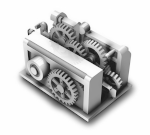Installation¶
Project code¶
Project code can be found at https://github.com/llm-workflow-engine/llm-workflow-engine
A list of available plugins can be found at https://llm-workflow-engine.readthedocs.io/en/latest/plugins.html#core-plugins
Requirements¶
To use this project, you need:
Python 3.9 or later
setuptoolsinstalled. You can install it usingpip install setuptools. Make sure that you have the last version of pip:pip install --upgrade pipA database backend (SQLite by default, any configurable in SQLAlchemy allowed).
From packages¶
Install the latest version of this software directly from github with pip:
pip install git+https://github.com/llm-workflow-engine/llm-workflow-engine
From source (recommended for development)¶
- Install the latest version of this software directly from git:
git clone https://github.com/llm-workflow-engine/llm-workflow-engine.git
- Install the development package:
cd llm-workflow-engine pip install -e .
Notes for Windows users¶
Most other operating systems come with SQLite (the default database choice) installed, Windows may not.
If not, you can grab the 32-bit or 64-bit DLL file from https://www.sqlite.org/download.html, then place the DLL in C:\Windows\System32 directory.
You also may need to install Python, if so grab the latest stable package from https://www.python.org/downloads/windows/ – make sure to select the install option to Add Python to PATH.
For the /editor command to work, you’ll need a command line editor installed and in your path. You can control which editor is used by setting the EDITOR environment variable to the name of the editor executable, e.g. nano or vim.
Installing examples¶
LWE provides several features that are controlled by adding correctly formatted configuration files to a specific configuration subdirectory:
Templates
Workflows
Model presets
OpenAI function definitions
If you’d like to jump start your setup with some examples of each, you can use the examples plugin (enabled by default).
To list the examples available, and where they will be installed:
/examples list
To install all the examples:
/examples
To install examples for a specific feature (e.g. templates):
/examples templates
